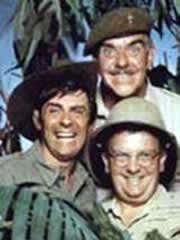
Following the welcomed arrival of the young and now married, Christine McVie to the line of Mac, the band now complete with guitarist, Bob Welch, wasted no time in writing and recording a new album. Since brushing off any acknowledgeable Peter Green quality, what we find in this album, ‘Future Games‘, is the foundations of the Fleetwood Mac we knew as one of the greatest international bands of the 20th Century.
After the raw, bluesy feel to the previous, Kiln House, it seemed that the addition of a soft, female voice, melted the minds of these scruffy, beer drinking musicians. Their work stands out on this album as creative and gently inspiring. The general outlook of this album is melodic and serene due to it’s two newest members yet, unfortunately it lacks the harsh rock and roll element of the original line up, still in a coma since the abrupt departure of Peter Green. It comes across, as altogether dipped, quite unrepentantly in thick honey to the point that it oozes perfect smoothness. The guitars are drowned out by unassuming bass and calmed vocals. Many would argue that the arrival of Christine was the end of Fleetwood Mac as their small fan base had come to know them, but I disagree. I think the change here within the band was merely a change that needed to happen. Times were moving on and the band had to stay in the running if they wanted to create a bigger impact on the music industry. Still slightly small fry, they were not prepared to go quietly into the dusty vaults were all the failed bands go.
~~~~~~~~~~~~~~~~~~~~~~~~~~~~~~~~~~~~~
In 1971, Fleetwood Mac had already gone through giant disruptions on a massive scale. The voice behind the shadow of Green had been Jeremy Spencer. Whilst he gave ‘Kiln House’ it’s exciting and humorous side line, he was also weak in the presence of drink and drugs. Like Green, he became disillusioned with the world around him and turned to religion as a warm comfort. After doing a disappearing act during one of the band’s tours, he was found, eventually in amongst a strange religious cult named the Children Of God. Both parties deciding to leave the other alone, and whilst out there, they picked up Bob Welch. Since the only man nearest to completing the line up for the blues era from Green was Spencer, the band quickly followed a more middle of the road feel which was brought in by Christine due to her previous folksy experiences with Chicken Shack. It is the basic qualities of this feel that is the underlying current of the most successful Fleetwood Mac records to date.
The simplicity of the album is first recognised in the details of the album cover. A list of the tracks, a collection of small, black and white photographs and one including a penguin., a list of the members and the ones who have gone. Interestingly, it also states that Spencer was one of the founder members of the band in 1967. It was founded originally by drummer Mick Fleetwood, guitarist Peter Green and a musician called Bob Brunning who went on to write the biography, Behind The Mask, capturing the bands’ existence. All it shows here, is that Spencer was, then and still now, regarded as one of the very important members of the band’s history. Green’s name still heralds a tribute by the band on stage, yet this is also the same legendary blues player who was found sleeping rough in South London back in the Eighties. I guess, sometimes there’s no accounting for recognition…
This short and minor acknowledged album is regarded as another one of those significant land marks in the history of the band. Due to the graceful engineering of Danny Kirwan and Christine McVie, they steered the drifting ship towards a more pleasing sound. Since it was Green’s ambition to generate something different (the reasoning behind ’Albatross) it would appear that in this album, FM have simply joined the rest of the world. It is notably a breakthrough in the career of each of it’s musicians, yet, it was not the way Green would have wanted to go. I guess he would say it was too wet…
The opening ’Woman Of 1000 Years,’ is more watery than Jefferson Airplane with it’s wistful guitar picked up from Albatross, although this track lacks the originality and magnetic quality of the latter. It is dreamy and beautiful but FM fans at the time must have been gravely disappointed. The blues had been washed away with the bath water. ‘Morning Rain,’ on the other is a point from where the first album to feature Buckingham and Nicks came from. Completely taken over by the strong influences of Christine, it now becomes apparent where the original sound of the latter day FM came from. She was a strength and direction of the band from the day she joined. If the rest of the them had been behind the wheel, then Christine was the SatNav.
Bringing her piano/keyboard techniques to the band, it opened up new experimental doors for them. Adding that certain jazz feel to the band, the element was still strong for the bass line to continue to be blues. The vocals were shared up using Christine’s slightly deeper, nasally vocal as a poetic compliment to the male leads. It is then perhaps in ‘What A Shame,’ that she lets the guys off the hook. Bringing in a diversity of John Perfect on sax, the blues edge takes a hold once more. A genre that always haunted the band.
Green’s ghostly ‘Black Magic Woman,’ with it’s voodoo presence, is still a personal favourite in the band’s set on tour today. This instrumental piece imitates a jazz/blues feel that we found in the soundtrack of The Blues Brothers. It’s not a definitive track here, but it shows that the band, at the time, were keen to try other things. This is also apparent in a smoothed out ‘Future Games,’ where it would seem the band were experimenting with a Who sound. With it’s distance vocals, it comes across as a bit of a mess. Thankfully, with the gentle yet tuneful ‘Sometimes,’ the direction of this album becomes clear. The track is laced with playful riffs and minor keys giving it a romantic approach. A good, strong track with vocals to match. Perhaps the track of the album that stands out the most, it doesn’t appear to be a Fleetwood Mac typical record. This track sounds, like any early track from a big rock group should, totally unrecognisable. What is surprising though is that the flat and mediocre ‘Sands Of Time,’ was the only single release from this album. It failed to make a mark on the chart. It is uninspiring and dull on the ears, yet still Christine through and through…
Moving towards that folksy, more relaxed theme due to the arrival of Mrs John McVie gave Fleetwood Mac a different perspective on the world. It changed their mood, the way they wrote and the way they composed. If previous albums were anything to go by, to drop the blues was probably not a good idea, yet what we find on this album is hints of the band to come. Each note is carefully crafted and skilfully produced in it’s feminine essence. If we compare it with the last album, Kiln House, it’s Future Games that stands out to the be the for runner of the Buckingham/Nicks revolution. Any albums before the entrance of long skirts and higher voices seems to be a thrown together, shouting heap of masculine, truck driver blues…
So what if the blues element is absent from here, at least they perfected the art of producing something more polished.
Lindsay Buckingham and Stevie Nicks replaced Bob Welch in 1975.
Danny Kirwan left in 1972 and attempted a solo career.
Tracks include;
Woman Of 1000 years
Morning Rain
What A Shame
Future Games
Sands Of Time
Sometimes
Lay It All Down
Show Me A Smile.
Fleetwood Mac in 1971 were;
Mick Fleetwood - drums
John McVie - bass
Danny Kirwan - guitar and vocals
Christine McVie - piano and vocals
Bob Welch - guitar and vocals.
1971 Warner Bros. Records Inc.
©m.duffy 2006
HMV - £7.99 delivered
Virgin - &9.99 delivered
Amazon.com - CD - £9.98/Vinyl
Friday, July 20, 2007
Four Hippies And A Penguin...
Posted by
Michelle Duffy
at
Friday, July 20, 2007
![]()
Subscribe to:
Post Comments (Atom)






No comments:
Post a Comment